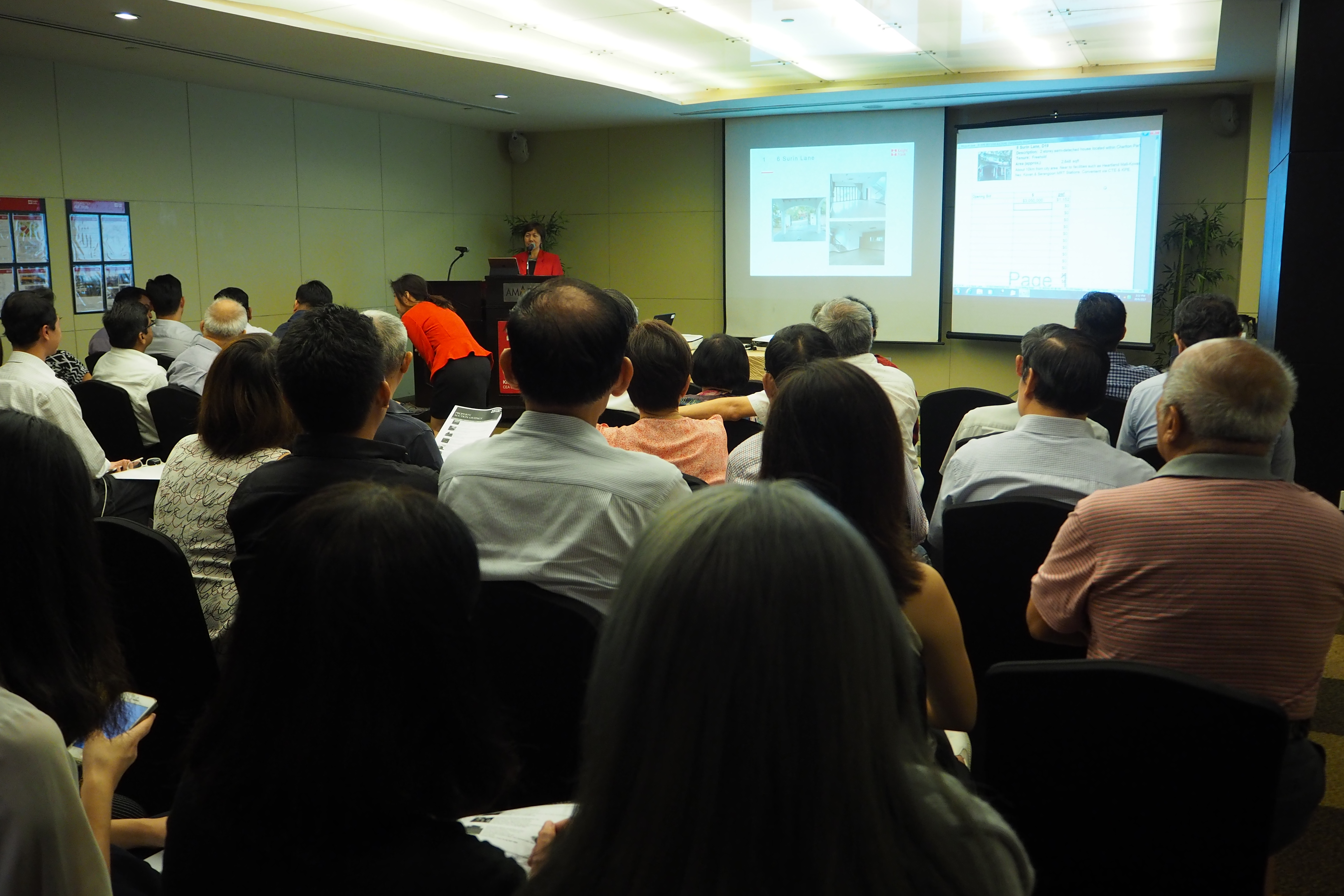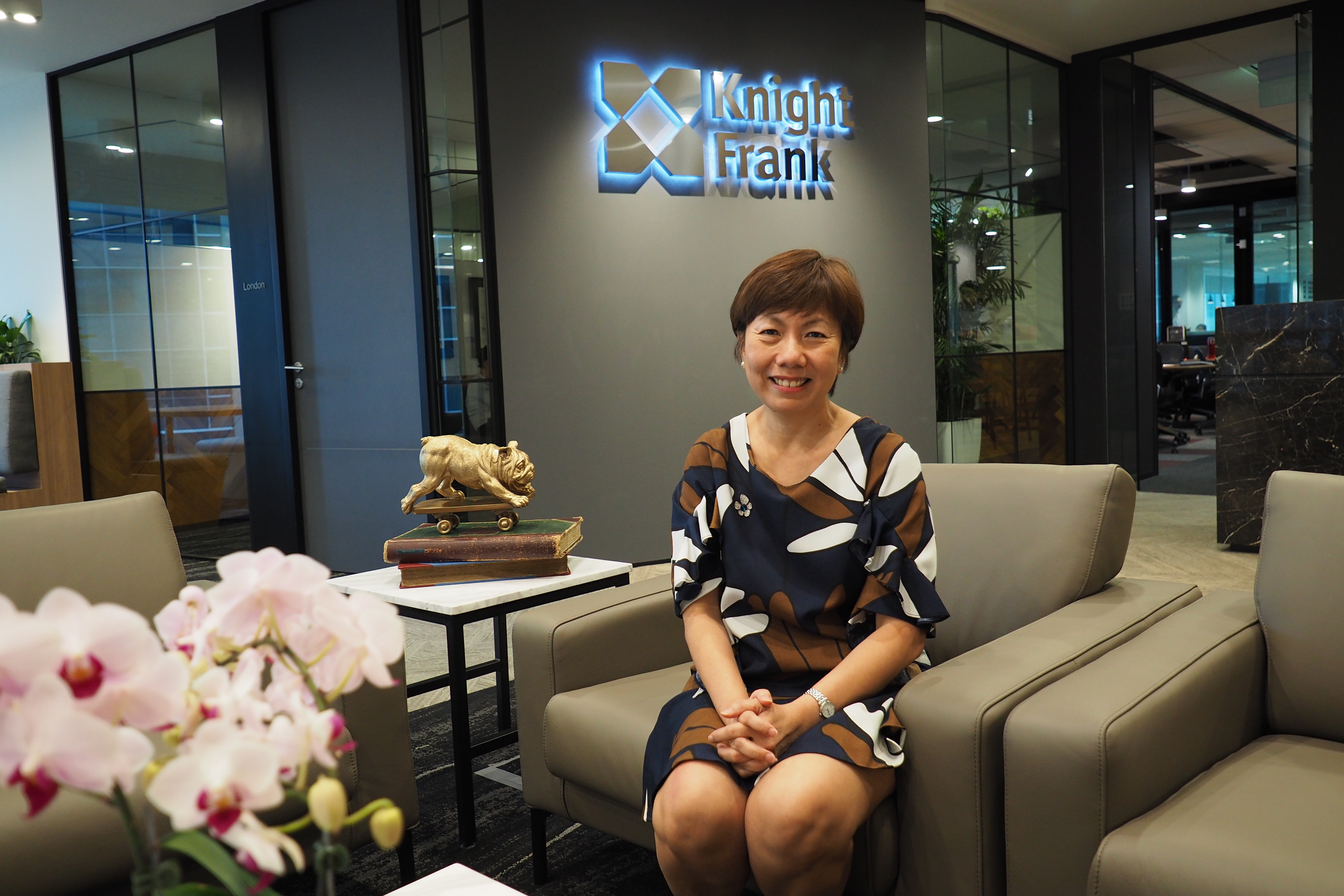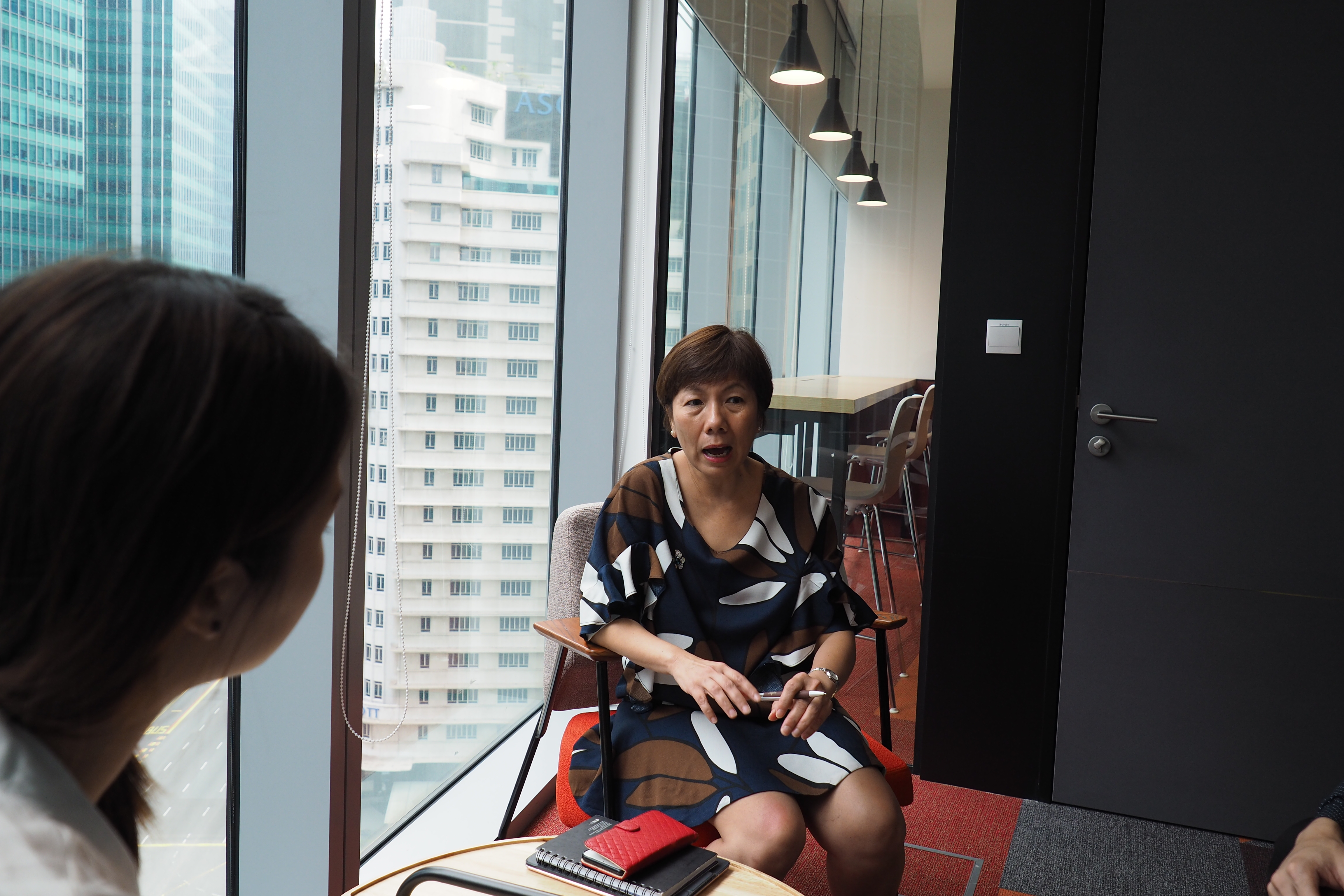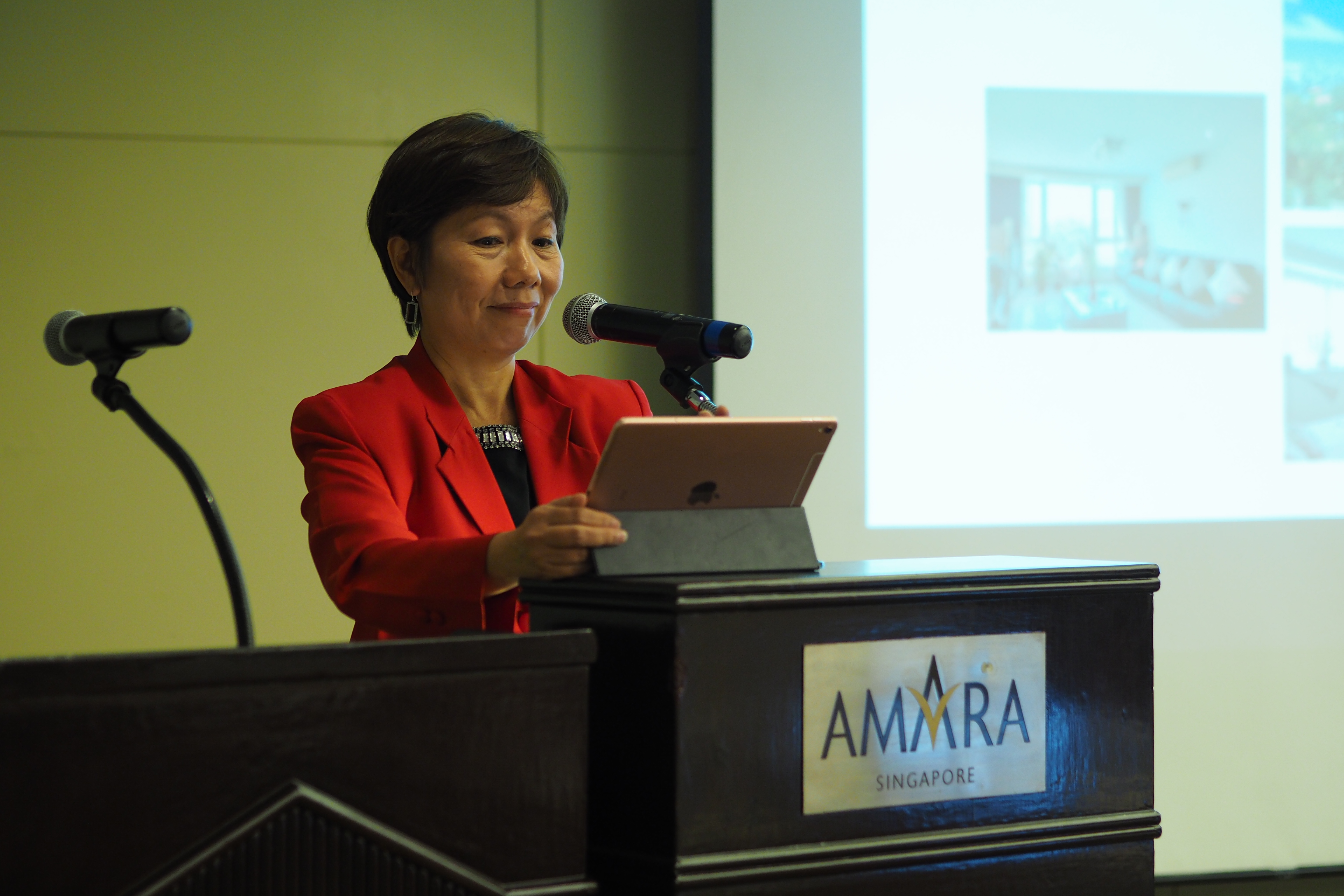For many of us, the word “auction” brings up imagery of a tense yet exciting environment where an auctioneer takes the lead in accepting bids and declaring goods sold. Or maybe when “auction” comes to mind, you think of art auctions where you can buy and sell contemporary and modern art.
On a monthly basis, auction houses in Singapore would hold property auctions, and the Redbrick team was curious enough to want to find out more: what goes on at an auction? Is it as exciting as we thought it would be?
Earlier this month, we visited Knight Frank’s property auction. The first property that was up for auction was thrilling: we got to witness minutes of bidding and counter-bidding, and before we knew it, the gavel was hit, and a back-to-back semi-detached house in the Kovan district was sold.
While many of us may not consider auction as a first choice for a mode of sale, it is no doubt that property auctions are getting popular. There are equal opportunities for both bidders (buyers) and sellers to get a good deal, although these opportunities are usually mutually exclusive.
We also had the opportunity for a conversation with Ms. Sharon Lee, Director and Head of Auctions at Knight Frank, who hosted us in the company’s swanky new office and of course, Sharon is no stranger to the industry.
For someone with so much experience in property auctions, it was no doubt an insightful session for us to gain a better understanding of auction processes.
The Redbrick Team (RB): What is a property auction?
Sharon Lee (SL): A property auction refers to a mode of sale – where there is a certain date, a certain time, and a reserve price fixed on that property to be sold. Every property has a reserve price, so if it falls below the reserve price, we will not sell it. However, if it’s above the reserve price, then we will sell it to the highest bidder.
The auction happens monthly at Amara hotel, and we invite all prospects who are interested in the properties to attend the auction to bid for it.
The Redbrick Team (RB): What kind of properties are usually put up for auction?
Sharon Lee (SL): 3 years ago, property auctions saw mostly owner’s sale, and less of mortgagee/bank sale. However, it’s been changing; nowadays, there are less owner sales and more bank sales instead.
We also get more industrial and commercial properties that are being put up for auction.
The Redbrick Team (RB): What is the process like for a property before/when it undergoes an auction?
Sharon Lee (SL): People used to call me, but I think there’s a change in the way we work. Now, we communicate through the internet. Prospective customers will text or WhatsApp me the address, and ask me for more details.
Then, we’ll call them, send them the auction proposal, then meet up and go through with them how an auction works. If they feel comfortable with the arrangement, they will give us appoint us to conduct the auction for the property. After which, they will need to appoint a lawyer as well, to prepare the necessary legal documents. With that, then we can start marketing.
To me, if you’re serious in selling, why not consider auctions? It’s just a process. If you sell at an auction, there are times where you can get a good price. Sometimes, it’s even above the last transacted price.
There are times you can’t sell it at an auction. Sometimes buyers are not in Singapore, or it may be a foreign buyer. But it’s ok, because we can do an after-auction mode of sale. We will still send the private treaty out.
The Redbrick Team (RB): Will property auctions always have good deals?
Sharon Lee (SL): Deals at property auctions are definitely better than the open market deals. In the open market, you can see until you luan (“messy/lost”), or sometimes you can’t find anything you like. Sometimes in WhatsApp, agents would contact me with their properties for sale. But if the prices are so high, so how do they expect people to buy?
The Redbrick Team (RB): Why is there an indicative price for some properties?
Sharon Lee (SL): When there is an indicative price, the popularity of the property is likely to go up. If the property gains popularity, then more people would want to view the property.
However, the indicative price does not mean that it’s a price that they are selling at. It’s usually higher than the reserve price. Certain properties may be sold higher than the guide indicative, but don’t hold us to the indicative price – it’s really just a guide.
The Redbrick Team (RB): How do I attend an auction?
Sharon Lee (SL): There’s no need to register; you can just turn up and walk in. But when you bid, please have a cheque ready. It’s contractual once you raise your hand.
I have agents who tell me that their buyer is not in Singapore. In this case, even if you have the cheque, it’s of no use because you cannot sign on your client’s behalf, so it’s not valid. Agents don’t usually dare to take it upon themselves to bid, so they would have to do a power of attorney before that.
The Redbrick Team (RB): What do you do at KF?
Sharon Lee (SL): My role is simple, but we also do other things. Apart from auctions, I do business development, I meet and talk with clients. I also handle the sale transactions, for resale units.
Some people are still not very comfortable with putting their properties up for auction because it’s so open, so we can do up other arrangements. Apart from auctions we also do resale transactions and tenders.
The Redbrick Team (RB): How long have you been working in the auction industry?
Sharon Lee (SL): I’ve been in this market for more than 25 years. I know wat owners want and our interest is always to give the owner the edge. Because of that, we won’t decipher whether this bidder is an agent or a direct client, but whoever has the highest bid would serve the purpose.
The Redbrick Team (RB): What does a regular work day look like?
Sharon Lee (SL): I’m always very busy. I usually have a lot of emails to answer from all the enquiries we get. Sometimes clients also request for certain things, which we will also have to answer to.
We also go down to look at properties, so we can guide owners in setting the price through our research. Apart from studying properties, we also study the market. We have to see what is moving (and what isn’t), so that we are up to date on the transacted prices.
It’s also essential for us to attend courses to help us better identify properties in the market, and how to explain certain pricing to clients. Apart from all these, it is important for us to cultivate partnerships with agents. This includes answering their queries, and figuring out a working relationship where we can trust each other and get work done more efficiently.
The Redbrick Team (RB): What is the highest price you’ve auctioned a property for?
Sharon Lee (SL): The highest price we have auctioned for was Scotts Tower. It was an en bloc development, that was sold at $96M.
So the next time you are looking to buy/sell a property, don’t forget to consider going through a property auction. Who knows? You may even score yourself a good deal!
Want to find the best mortgage rate in town? Check out our free comparison service to learn more!
Read more of our posts below!






